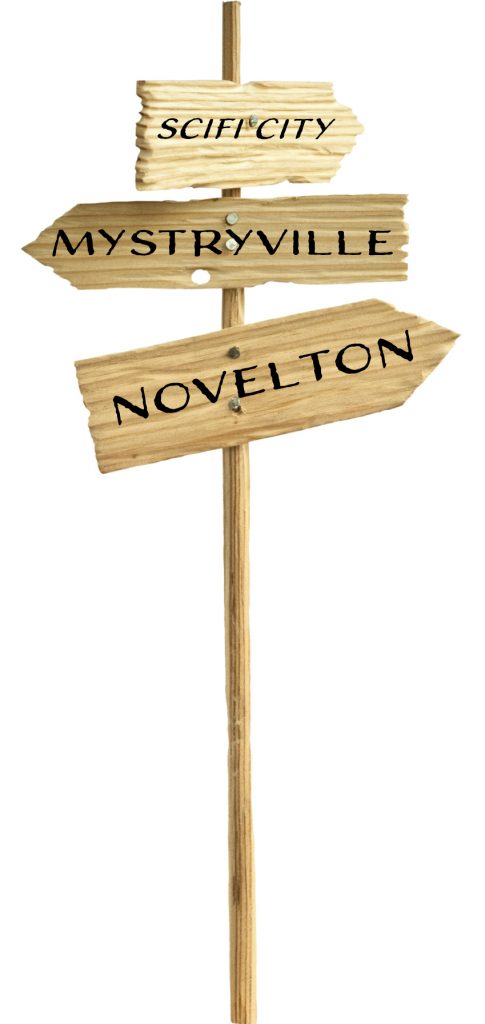It’s one of the most annoying answers in writing. The question?
How many words should my book be?
Answer: as many as it takes to tell the story.
Commence head banging now.
The problem is that this is the right answer. It’s brilliant. And it’s annoying.
There are those who say, “Word count is just a sum of the words on the page. You should be concerned with the difference they make in the story.” Okay, no one says exactly that. That’s my take on the general idea, and I have to admit, I feel rather clever right now.
Those people are right, you know. As far as story goes, word count is just what ends up at the bottom of the screen when you stop typing. That’s it.
Note: links in this post may be affiliate links that provide me with a small commision at no extra expense to you.
So why care about something so annoying as word count?
Well, I’m going to give you my reasons anyway. These are why word count is always on my mind, why I keep track in a journal, why I post on charts, and why I have tracker bars on my website.
This is how I take those annoying word count things and let them work their brilliant magic.
You see, at the beginning of my writing journey, I “pantsed” (for more about “pantsing” see THIS post) my word count just as much as I did my writing. I let the story take me where it wanted. And you know what? It worked for me. I needed that time of free-form expression. It taught me much. So at the end of a book, there might be 40K words—or 90K. The funny thing is, I had a goal in mind from the very first book I wrote.
90,000 words. Why 90 and not 80 or 120? I’ll tell you. It’s because I once read Dee Henderson say that was her target word count. I liked the length of her books—not too short, not all dragged out. Baby bear’s books—just right.
Why did I have that goal? For several reasons:
 First:
First:
Because the number of words determines what your story is. Is it a short story? A Novella? A Novel? According to Writer’s Digest, short stories can go up as far as 30K words (I say 20k max). novellas to 50K. novels to 300K! (Hint: the most rejections traditional houses send out are for too long, but the biggest cause for ALL rejections is too long or short).
Over the past ten years especially, those word counts have dropped significantly, however. Part of this I attribute to certain novella collections by a popular Christian fiction publisher. Theirs max out at around twenty-thousand words because when you put five to eight authors in one collection, you’re talking a hefty book–especially in print!) Dave Chesson from Kindlepreneur talks about the newer word count lengths and what they mean for writers in THIS article.
What does this mean in general, though? It means that word counts do matter—if not to a publisher (who is only trying to find what a reader will pay for), then to a reader (who wants to know approximately how long it will take him to finish your epic 405K word saga.
 Second:
Second:
Because you need a destination. Look, you can over or underestimate just how many words you need. But without an estimate, it becomes too easy to fill the pages with interesting bits that have only the most tenuous link to the overarching tale.
Look, some stories lend themselves to those kinds of details and rabbit trails, but the reader of those genres/styles expect that. When a mystery lover picks up a 150K “cozy” mystery, she knows it’s not just a mystery. It has to be more than that because a 150K mystery when the average mystery is 65K. That’s over double! Instead, it’s probably an exploration of human character as well as the actual “who/whatdunnit.” Actually, my Madeline series is like that.
Third:
Because if you’re writing epic fantasy and can’t get past thirty-thousand words, are you fully exploring your story? Will the reader get a sense of the world you’ve created? Is there enough action? Tension? Is there only action and tension with no personal growth and relational development? Yeah. That might be part of the problem, don’t you think? Basically, it’s because word count is a GPS for your destination. If your goal is a short story and you have fifty-thousand words, you need to let it reroute you back to your original destination, or you need to reevaluate where you’re going. You might be looking at a novella or a novel.
And that first book that I “pantsed” the word count on? Yeah, it ended up at 60K words. Far short of the 90K I wanted. Oh, and those 60K words comprised what ended up being two full books and a third of another—each of which was 120k words or more in the end. Ahem.
So in the great debate, “Does word count matter?”
My answer is, “Yes. But as a guide to making your book the best it can be. After that, it’s just a number. But it’s one that baffles and intrigues readers and writers alike. I can’t tell you how many times people have asked me, “How many words is a good number for…?” Or, “How do you decide how many words will be in your novel?”
I also can’t tell you how often I want to say, “Well… as many as it needs.” Actually, I usually do say that and then qualify it so they won’t want to shoot me. That’s when I say, “But my goal is usually 90,000. If I make it to that number, great. If I finish before I get there, and if the whole story has been told… YAY! I’m done. If I hit 90K and it’s not done? When I look at what I’ve written and I can’t cut it without ruining the story? Then I accept that it’s a longer story, and I leave it.
It works for me.
Why? Because, well… Like I said above…




That question makes me think of the answer I often get when I ask what I should cook for dinner. The answer I most hate getting? “Food.” So helpful.
RIGHT? And if you ask them to be specific, they say, “Good food.” Well, gee!
Brilliant! Where was this blog six months ago when I spent hours searching for how long my book should be? Lol. I like your qualifier. But in my situation, my story is continued in multiple books (was planning a trilogy but…) That’s always a thought if someone’s story runs waaay long. See if they can break it into other books (like you did with Aggie!)
Weeeeeeeeeeeeeeeeeelllllllll LOL! When all else fails, cut the fluff or expand the series (if there is no fluff).